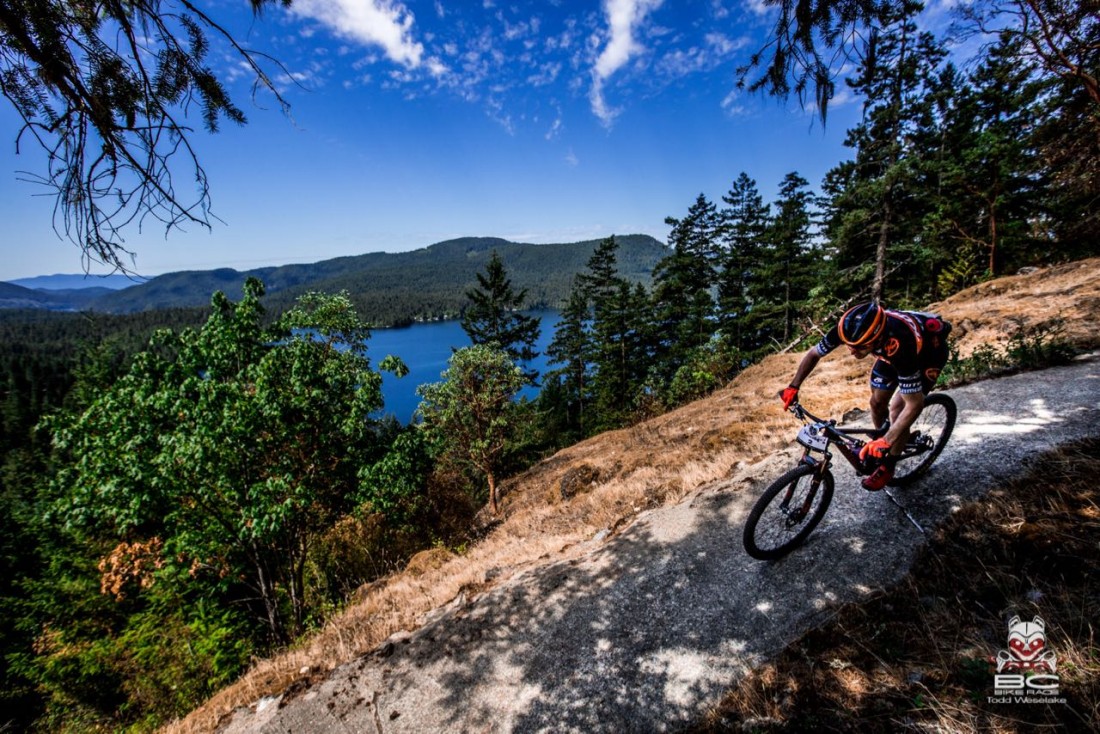Photos: Margus Riga, Dave Silver, Erik Peterson, Todd Weselake
Today is what I’ve been searching for. The trails today were why I came to BC. Techy but still a chance to get up some good speed and let it all hang out!
For me I had a good day. Still lacking the climbing legs to stay at the front, I used the back half to push on and make up a few positions. Today was the longest stage of the event and it certainly had a few riders worried before the start. We had a late start of 11am due to a big morning of transport. I had the luxury of arriving to the start by float plane thanks to Harbour Air!

I crossed the 7th, 5 and a half minutes back from the winner, my best day yet! Overall my body is holding up well and my Trek Superfly FS has been flawless!
One of the things that makes this race so easy for international riders to attend is the food situation. Let me give you the scoop. When you buy a meal package all breakfast and dinners are catered for. All the riders come together in a hall, where local caterers or chefs make delicious and nutritious meals. Plenty of carbs definitely go down. On course the aid stations are stocked full of Clif products, fruit, lollies, water, electrolyte and Red Bull. At the completion of the stage there is again a stocked aid station, as well as food vendors cooking up some tasty goods. I myself have been tucking in to a burrito: carbs, protein, salt. It’s a winner!

Jose Luis Arce of Spain might have been tempted by the water if he saw it.
High Point
The float plane! How many races do you get the opportunity to take a plane to the start!
Low Point
Seriously no real low point today. I had a small off but nothing bad to speak of.
Google Says:
The District Municipality of Sechelt is located on the lower Sunshine Coast of British Columbia. Approximately 50 km northwest of Vancouver, Sechelt is accessible to the mainland of British Columbia via a 40-minute ferry trip between Horseshoe Bay and Langdale, and a 25-minute drive from Langdale along Highway 101, also known as the Sunshine Coast Highway. The municipality takes its name from the Coast Salish Shishalh people, who first settled the area thousands of years ago, and means “land between two waters”.

Phil Johnston of Vancouver ghosting the Day 3 trails.
The official word

Udo Bolts of Germany is a former Tour De France rider (12x) and knows about looking through a corner even on the mountian bike.
